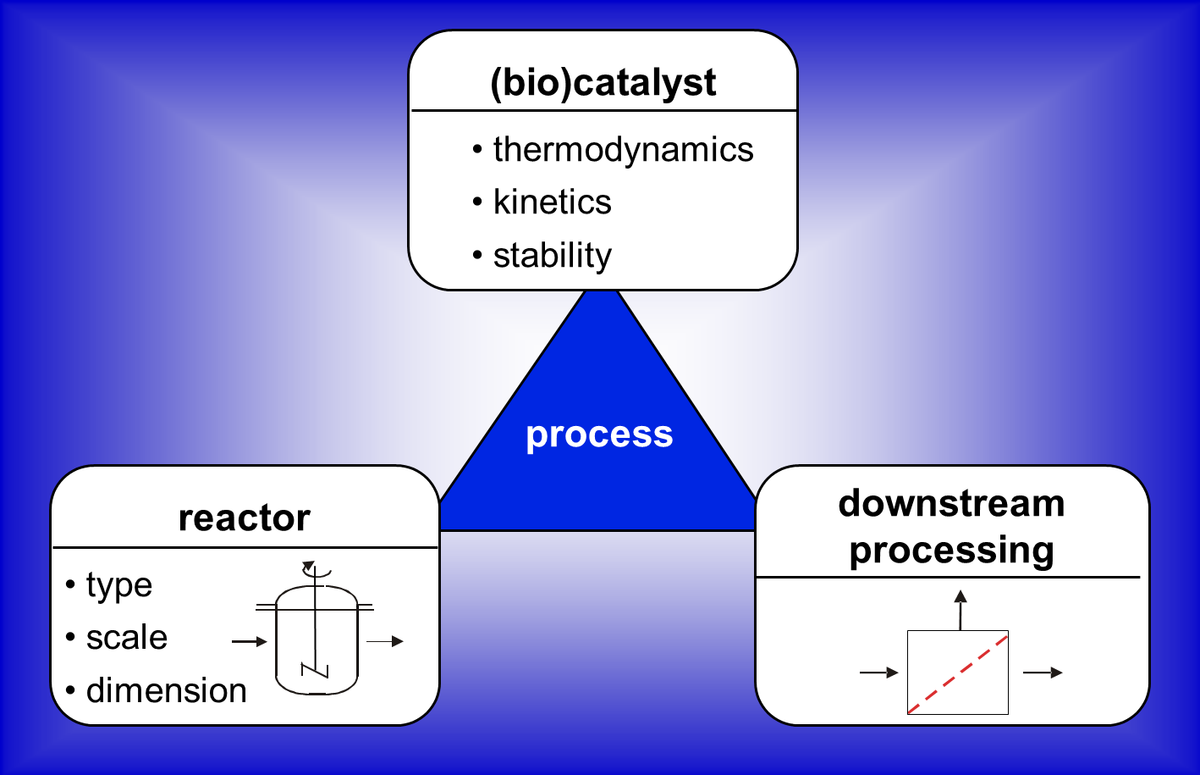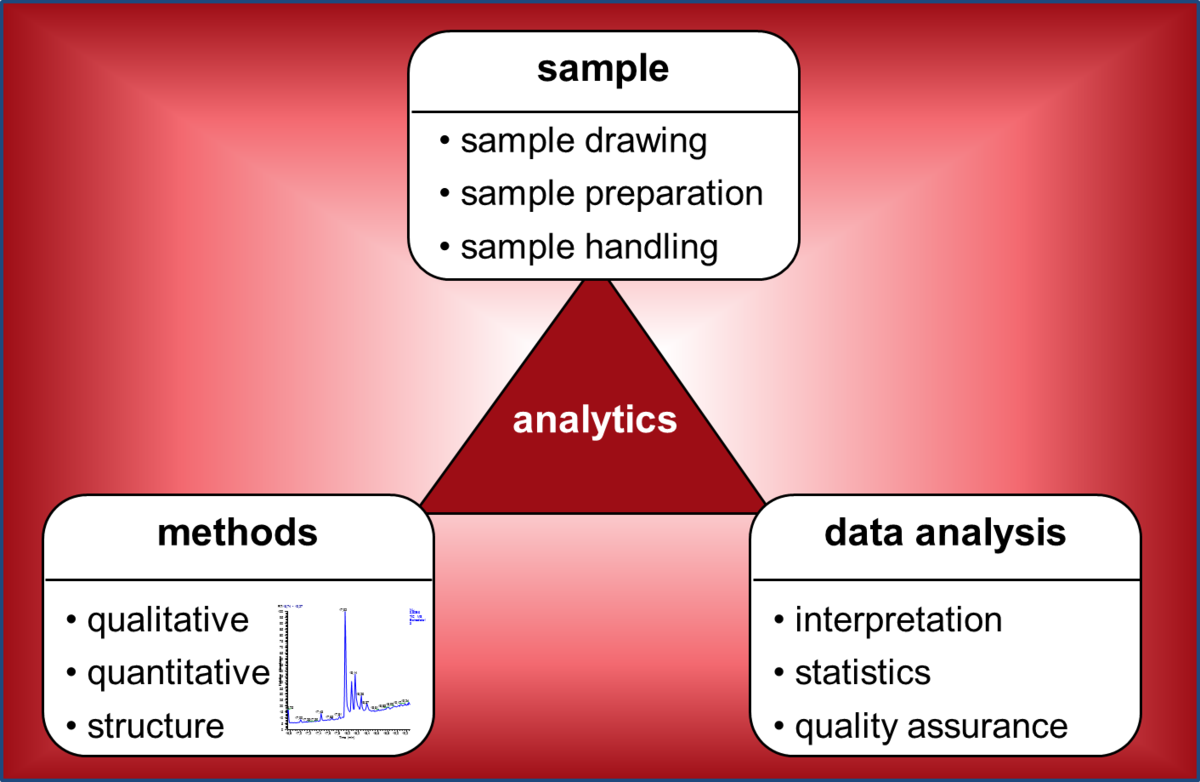The research group Kragl is divided into two research institutions:
- Research Group at Rostock University
- Research Group at Leibniz-Institut für Katalyse (LIKAT)
Our work is directed towards gaining basic knowledge as well as to develop practical processes. Investigating the main parameters necessary information for scale up is collected or novel areas for application are to be developed. The research focus is divided into two main areas, the process development for chemo- and biocatalysis and trace- and process analytics.
Research Group at Rostock University
The process development is concerned with the efficient conversion of (bio)chemical substances and materials into the desired products. Thereby, quantitative investigations based on thermodynamic and kinetic measurements are implemented in order to determine weaknesses. Especially the development of efficient downstream processing strategies allows a reduction in the overall costs.
In the field of analytics, modern chromatographic coupling methods such as GC-MS and LC-MS offer an enormous potential for qualitative and quantitative investigations at trace quantities. Similar to the process development, the combination of the sample preparation, the choice of the analytical method and the subsequent data analysis must be optimized in order to obtain reliable analysis results.
Current research topics:
- Biocatalysis:use of enzymes for synthesis of carbohydrates or chiral intermediates; oxidation reactions; C-C-bond forming reactions; heterocoupling
- Chemo- und Biocatalysis in multi-phase-systems; investigation of mass transport
- Membrane Process: ultra- and nanofiltration for catalyst separation (enzymes, homogeneous catalysts) and for downstream processing of low molecular weight compounds
- Ionic Liquids: biocatalysis in ILs; membrane process for recycling and downstream processing; analytics of ILs; polymerized ILs; development of novel applications
- Renewable Resources: downstream processing; derivatisation with chemical and enzymatic methods
- Trace and Process Analytics: Use of HPLC, GC, IC, GC-MS, LC-MS for identification and analytics of substances in processes or plants
- Chemical Reaction Engineering: Kinetic and thermodynamic characterisation; novel reactor concepts with integrated product removal for process intensification; micro reaction technology
- Electrochemistry: electrosynthesis, electrochemical coupling methods
Research Group at the Leibniz Institute for Catalysis
One of the main focus is the synthesis of oligomers and polymers, which are used as precursors for adhesives, sealing materials and coatings. On the one hand, new catalysts are being developed, and on the other hand, process-specific questions are being adressed together with cooperation partners. Sample quantities are produced for the formulation tests. This involves avoiding toxic or environmentally hazardous substances in the adhesive formulations. The synthesis of polymers with low polydispersities, characterization and optimization of process parameters and further deveelopment of the catalysts are at the forefront of the work. In addition, processes for two-phase catalysis and derivatization of renewable raw materials are investigated.
Current Research Topics:
- Multi-phase catalysis
- C-C-bond forming reactions such as Heck-, Suzuki or Stille-Kupplung; hydroformylation
- Catalyst design for stereoselective polymerization in the area of polyole
- Reactors and autoclaves for multi-phase reactions; use of synthesis gas (CO/H2)
- Silicon-based polymers
- Polyether-based functional materials



